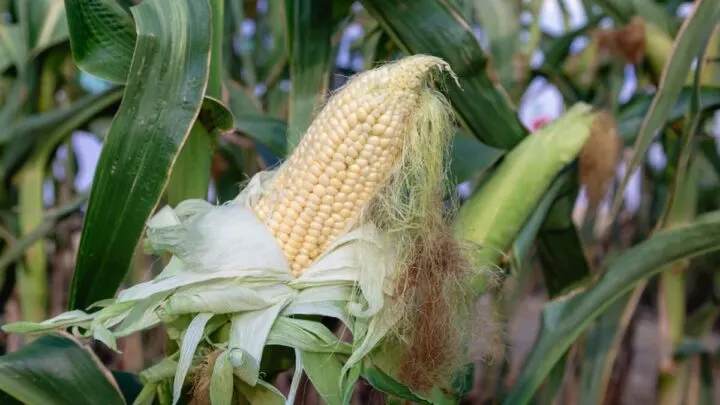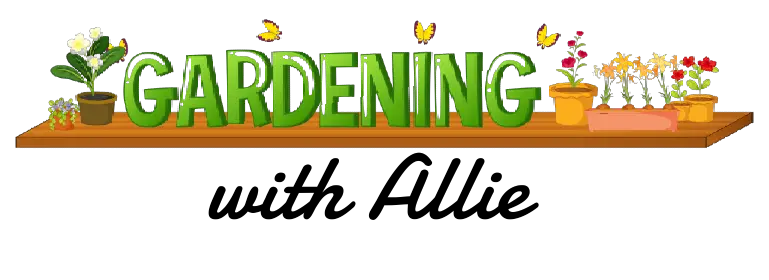When planning a garden, it is essential to know what plants can be planted near one another. Planting crops and plants near one another is called companion planting; this becomes extremely important when wanting to create a garden that thrives all season long. But what is the point of companion planting? What can be planted near each other? Can I plant carrots and corn together?
Yes, you can plant carrots and corn together. While these two are not common companion crops, carrots and corn do not affect one another negatively when planted near one another.
Read on to discover more about companion plants for carrots and corn and why you want to plant companion crops.

Why Should I Plant Companion Plants
When planning your garden, you will want to know what plants can be grown near one another. Most plants will offer more than one benefit when planted. Some herbs repel pests and double as an additional harvestable crop in your garden.
What Plants Attract Pollinators
Growing plants that attract pollinators is a great way to help your garden thrive. Most bright-colored flowering plants are attractive to bees and other beneficial insects. Marigolds have bold yellow and orange blooms, making them excellent for those who want a pop of color in their vegetable garden.
Bee balm grows tall, sometimes over 3 feet tall, and blooms bright purple flowers atop. Bees love purple-colored plants, so growing any purple blooming flower will benefit your garden.
What Plants Repel Pests
When choosing plants to grow as companion crops in your garden, selecting varieties that help repel pests is a great option. Herbs like basil, mint, lemon balm, and oregano help repel fruit flies, whiteflies, and spider mites.
Marigolds, mentioned above in the pollinator section, also help repel root-knot nematodes! Lavender is an excellent option for keeping mosquitos and flies away from your crops and yourself while enjoying your garden.
You can always spray insecticide and other pesticides to ward off pests and insects, but growing natural herbs and plants within your garden allows you to grow an organic crop and avoid harsh chemicals. This is especially important if you are growing vegetable crops for consumption.
What Should I Plant With Corn
Now that you know about companion crops and some benefits of planting them, you may be wondering what plants you should grow with corn. When planning your garden, you will want to consider these plants to ensure a thriving corn crop. Below, find some of the best companion crops for corn.
Cucumber makes a great addition to your garden and a companion plant for corn. Cucumber plants grow on vines, sprawling out, creating ground cover providing shade and helping to keep the soil moist. You can also use a wood mulch to help keep your soil moist near your corn plants.
Marigolds help protect your corn plants from pests, like aphids, which are known to attack corn stalks and damage your plants. As mentioned above, marigolds provide many benefits when grown in your garden, including attracting beneficial insects and repelling damaging ones.
Borage is a flowering plant that helps repel corn worms and deter other pests while attracting beneficial ones. Corn worms are one of the top dangers to corn plants.
Dill is a wonderfully fragrant herb that helps attract pollinating insects. Some pollinating insects like parasitic wasps help keep other insects away from your plants.
Melons are vine plants, just like cucumbers. Growing melons in your garden provides ground cover to help prevent weeds from growing near your corn plants.
Mint is another fragrant herb that helps repel unwanted pests and insects. Just as dill is beneficial for your garden, growing mint will help your garden thrive.

What Should I Not Plant With Corn
Since you now know what plants are beneficial to grow near your corn crops, you may be wondering what plants you should avoid growing near them. Just as certain plants provide benefits and help your plant thrive, some plants negatively affect one another. Be sure to avoid these plants when planning your garden.
- Tomatoes and corn share a common enemy, the corn earworm and the tomato hornworm. While these names may make you think they are two different insects, they are actually one type of insect that changes names depending on which plant is infected. Growing tomatoes and corn near one another can create a significant infestation and loss of both crops if one becomes infested with worms.
- Plants in the cabbage family are extremely sun-loving. The towering height of your corn stalks can provide too much shade for these plants. Avoid planting Brussels sprouts, cabbage, broccoli, and cauliflower near your corn plants.
- You should not plant fennel near corn or most other plants. Fennel’s roots release a substance into the soil that can inhibit the root growth of other plants, causing them to be severely stunted or even die.
What Should I Plant With Carrots
Carrots are an early-season plant. They thrive in the late spring and early summer weather. Delicious, crunchy, and versatile, carrots make a wonderful addition to any garden. But what should I plant with carrots? Read on to find the best companion plants for carrots.
Beans and Peas make great companion plants for carrots. Carrots thrive in soil rich with phosphorus, which peas and beans both produce. Growing beans and peas also provide your garden with more edible crops, increasing the harvestable yield of your garden.
Sage and Rosemary are both aromatic herbs that help repel insects like the infamous carrot fly.
Tomato plants and carrots planted together help one another immensely. Carrots help keep the soil loose for tomato plants, and tomato plants help keep the carrot plants shaded. Growing carrots near tomato plants also makes the carrots extra flavorful!
What Should I Not Plant With Carrots
While garden planning, it is just as important to know what not to plant with certain crops as it is to understand what plants make great companion crops. So what should you avoid when planting carrots? Read on to discover plants and crops that you should not plant near carrots.
Dill should not be planted near carrots. This herb can cross-pollinate with carrots, create a not-so-great hybrid, and ruin your carrot yield.
Parsnips and other root vegetables can compete for nutrients like phosphate with your carrots, stunting these plants’ growth and rendering them essentially inedible and small by the end of the season.
Potatoes should not be planted near carrots for the same reason that parsnips and root vegetables should be avoided.
Final Thoughts
Garden planning requires many steps, including designating plants’ spots based on sunlight hours, space requirements, and what can be planted near one another. Companion planting is an integral part of the puzzle and will help your garden thrive at its highest capabilities.
Companion planting provides multiple benefits for your crops, including pest control and pollinator attraction. But, if you plant crops that are not good companion plants, you can seriously stunt your plants’ potential and even kill them. Avoid planting crops that require the same nutrients near one another to avoid competition. Now that you know what to plant near each other, you are ready to get out there and start planting!

Hi there, my name is Allie and welcome to my blog; GareningWithAllie!
Much of what you see written here is just our personal experiences with gardening. Along with the content I write here, there is also a unique collection of gardening topics covered by some of our close friends. I hope you find everything you read here to be helpful, informative, and something that can make your gardening journey the most lovely experience ever! With that said, Happy Gardening!
